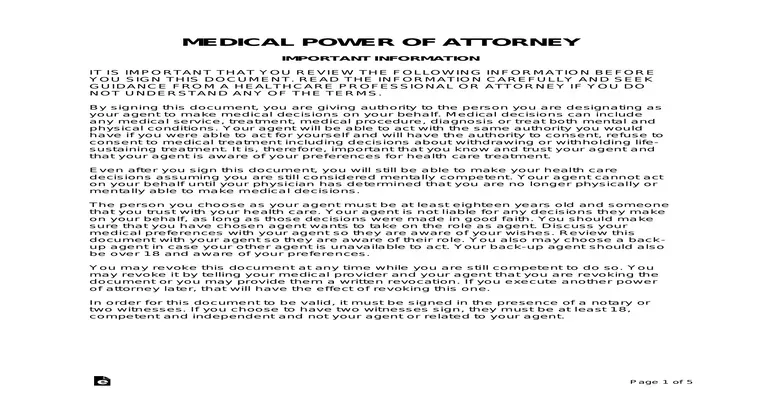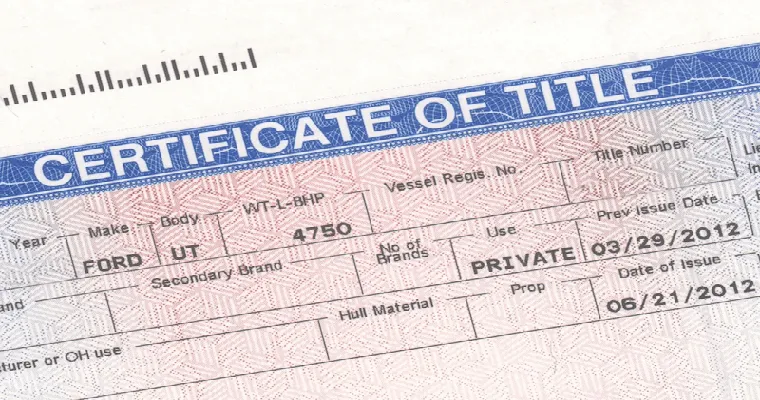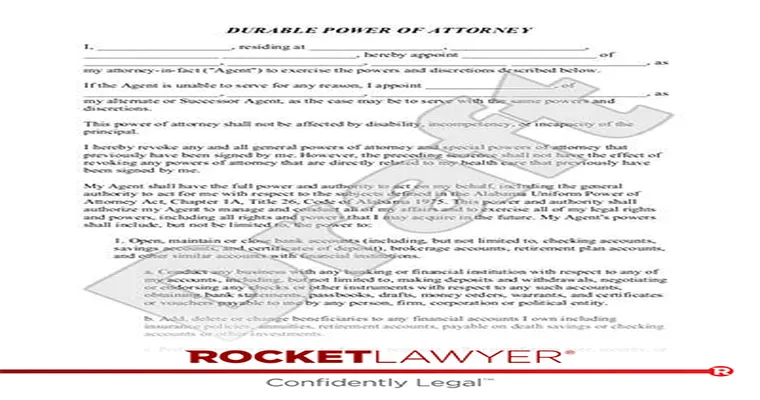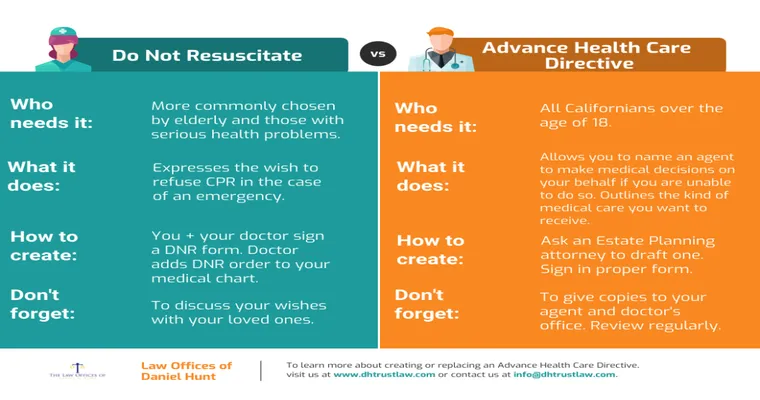A "Medical Power of Attorney (POA)" is a crucial legal document that empowers someone you trust to make healthcare decisions on your behalf when you are unable to do so. Understanding how and when to establish a "Medical POA" is essential for ensuring your health care preferences are respected in critical situations. This article will guide you through the process of creating a "Medical POA", its importance, and the appropriate circumstances for its use.
What is a Medical POA?
A "Medical Power of Attorney" is a legal instrument that allows you to designate an agent or proxy to make medical decisions for you. This document becomes particularly important in situations where you may be incapacitated due to illness, injury, or cognitive decline. The appointed individual is responsible for making decisions that align with your wishes, values, and beliefs regarding medical treatment.
When Should You Consider a Medical POA?
Establishing a "Medical POA" is advisable at various life stages, particularly during:
1. "Major Life Changes": When entering into significant life transitions such as marriage, divorce, or having children, it’s important to have a "Medical POA" in place.
2. "Health Concerns": If you have a chronic illness or are facing surgery, it is prudent to prepare a "Medical POA". This ensures that your medical choices are clear to your healthcare providers and family.
3. "Aging": As you or your loved ones age, the risk of health issues increases. A "Medical POA" can help ensure that your healthcare preferences are followed.
4. "Traveling": If you are traveling, especially internationally, having a "Medical POA" can be beneficial in case of emergencies, allowing your designated agent to make decisions on your behalf.
How to Create a Medical POA
Creating a "Medical POA" involves several key steps:
1. "Choose Your Agent": Select someone who understands your healthcare preferences and is willing to take on this responsibility. This can be a family member, friend, or trusted advisor.
2. "Discuss Your Wishes": Have an open conversation with your chosen agent about your values and what you would want in various medical scenarios. This ensures they can make informed decisions on your behalf.
3. "Draft the Document": While it is possible to create a "Medical POA" on your own, consulting with a lawyer who specializes in estate planning can help ensure that the document meets legal requirements in your state.
4. "Sign and Notarize": Most states require the "Medical POA" to be signed in the presence of witnesses or a notary public. Check your state’s specific regulations to ensure compliance.
5. "Distribute Copies": Once the document is finalized, give copies to your agent, healthcare providers, and close family members to ensure everyone is informed.
Importance of a Medical POA
Having a "Medical POA" in place provides peace of mind for both you and your loved ones. It helps prevent confusion and conflict during emotionally charged situations by clarifying who has the authority to make decisions on your behalf. Moreover, it reduces the likelihood of your wishes being disregarded in critical moments.
Conclusion
In summary, a "Medical Power of Attorney" is an indispensable tool in managing your healthcare preferences. Knowing how and when to establish a "Medical POA" can significantly impact your medical treatment and ensure that your choices are honored. If you haven’t already, consider discussing the possibility of a "Medical POA" with your loved ones and legal advisors to safeguard your health care decisions for the future.





